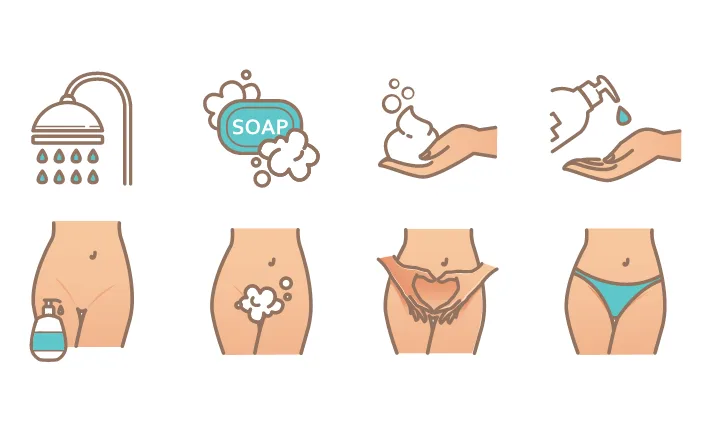How To Care For Vaginal Discharge - An Intimate Hygiene Guide

How To Care For Vaginal Discharge - An Intimate Hygiene Guide
Maintaining vaginal hygiene is crucial for a woman's health. Taking care of and cleaning your intimate area the correct way can help keep uncomfortable vaginal infections at bay. Vaginal discharge is a sign of a healthy female reproductive system and body, and there is nothing to be ashamed of or feel dirty. It's a normal bodily function and your vagina's way of cleansing itself. However, an excessive discharge can cause discomfort.
The best way to manage and care for your vagina is to keep it clean. And if required, use tools such as panty liners to be comfortable. You can try the Always Daily Liners Comfort Protect panty liners that have a discreet and flexible design and have super absorbency for all-day comfort and protection. But first, let's understand what vaginal infections are and what causes them.
What are Vaginal Infections and How Do They Happen?
Your vagina already has a healthy level of good bacteria living inside, which aids in self-cleansing. However, improper hygiene or unsafe sex can cause the bacteria, fungi, or other organisms to grow uncontrolled and cause infections. To avoid such infections, it's essential to maintain proper vaginal care. Here are two key points that you should keep in mind to maintain intimate hygiene:
- Daily hygiene habits
- Hygiene After Intercourse

Always wear comfortable and breathable undergarments and underwear.
1. Daily hygiene habits
When it comes to washing your vagina, there's a lot of misinformation. First, it's important to understand the basic anatomy. You do not wash your vagina because the vagina is a canal inside your body. When you talk about cleaning, you're referring to the vulva, the outer parts, around your vagina. To ensure that your intimate area is clean and free from any infections, here's what you should do:
Always wear comfortable and breathable undergarments and underwear. Keeping your outer vaginal area as dry as possible is key to maintaining vaginal hygiene. Moisture promotes bacterial growth, hence allow the area to breathe.
Change your underwear twice a day if you experience excessive vaginal discharge instead of sitting in wet or damp underwear all day. You may want to consider using a panty liner on those days to manage the discharge effectively.
Change your tampons or panty liner two to three times a day or more if needed.
The best way to wash the area is by using water and mild soap. Even if you skip showering, make sure you wash the area around your vulva daily.
Here's what you shouldn't do:
- Don't use scented soaps or gels as they can irritate the sensitive skin around the area. Also, using scented products will mask the odour that could be the result of any underlying issue.
- Don't forget to wipe your area from front to back after using the toilet to avoid transferring unwanted bacteria from the anal region.

Don't use scented soaps or gels as they can irritate the sensitive skin around the area.
2. Hygiene After Intercourse
Sexual intercourse is a healthy activity and must not be considered dirty or handled in an unhygienic manner. Here's what you should do to avoid infections after sex:
- Shower or at least wash your vulva thoroughly with water after having intercourse.
- Always urinate after sex to flush out any bacteria that could make their way up to your urethra.
Here's what you shouldn't do:
- Don't share sex toys with your partner.
- Don't douche or use any douching tools to clean your vagina; it is not supposed to smell like a rose garden.
- Don't put any food items - salt, vinegar, garlic, or any other alleged home remedies - in your vagina for any reason. Whatever you use should only be prescribed by a doctor.
Like any other part of your body, your vagina and vulva also need proper care and hygiene. Ensure that you maintain daily hygiene to have a healthy vagina and reach out to your doctor whenever you have any concerns or doubts.

Now keep a track of your ovulation period with Aways Safe Days Calculator.
Disclaimer
Please note the date of last review or update on all articles. No content on this site, regardless of date, should ever be used as a substitute for direct medical advice, diagnosis or treatment from your doctor or other qualified clinician. Always is committed to ensuring that all of our products meet rigorous safety standards; Always pads prioritize safety, protection and comfort of its consumers.









